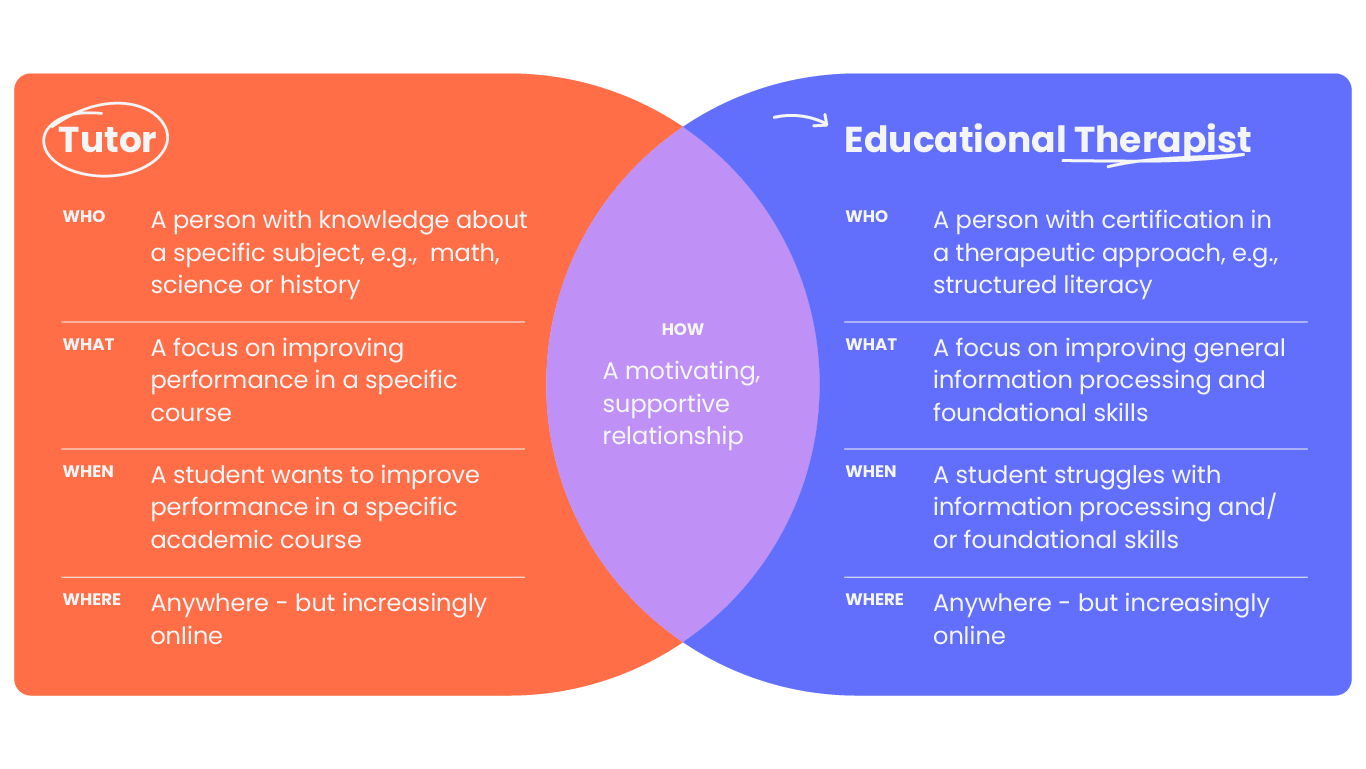Educational Therapy or Tutoring – Which Is Right For Your Child?
Written by Sandie Barrie Blackley, Speech-Language Pathologist
Published on March 7, 2025
When a parent notices their child is struggling with reading, spelling, or writing a first impulse is often to seek help. In this article, we’ll discuss two types of help for struggling students: tutoring and educational therapy.
Tutors and therapists are similar in that they both work one-on-one with students, using a personal relationship to encourage motivation and accountability. But, that is where the similarity ends. The diagram below compares tutors and therapists.
While tutors use the course subject matter as the starting point, educational therapy typically begins with an assessment to pinpoint a student’s strengths and weaknesses as a basis for planning customized, targeted intervention.
Educational therapists are trained to work with issues like:
- dyslexia and other types of reading disorders
- dysgraphia and other types of writing disorders
- dyscalculia and other types of math disorders
- working memory issues
- performance-related stress and anxiety
- auditory and visual processing issues
- attention-deficit /hyperactivity disorder (ADHD)
- executive function difficulties (for example, organization and time management)
Do I Need a Tutor or an Educational Therapist?
A tutor may be the right choice if a student has gotten behind in a subject due to absence or schedule disruptions, or if the student has difficulty with a specific body of knowledge. However, an educational therapist is more likely the right choice to help a student overcome processing difficulties, learning challenges, or attention struggles.
Improve Your Child’s Reading
Learn more about Lexercise today.
Schedule a FREE
15-minute consultation



